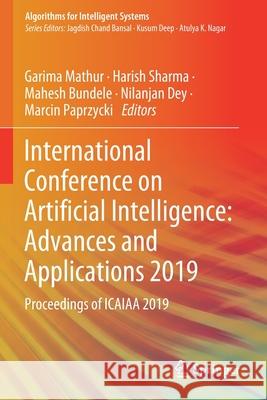International Conference on Artificial Intelligence: Advances and Applications 2019: Proceedings of Icaiaa 2019 » książka
topmenu
International Conference on Artificial Intelligence: Advances and Applications 2019: Proceedings of Icaiaa 2019
ISBN-13: 9789811510618 / Angielski / Miękka / 2021 / 394 str.
International Conference on Artificial Intelligence: Advances and Applications 2019: Proceedings of Icaiaa 2019
ISBN-13: 9789811510618 / Angielski / Miękka / 2021 / 394 str.
cena 924,16
(netto: 880,15 VAT: 5%)
Najniższa cena z 30 dni: 771,08
(netto: 880,15 VAT: 5%)
Najniższa cena z 30 dni: 771,08
Termin realizacji zamówienia:
ok. 30 dni roboczych.
ok. 30 dni roboczych.
Darmowa dostawa!
Kategorie:
Kategorie BISAC:
Wydawca:
Springer
Seria wydawnicza:
Język:
Angielski
ISBN-13:
9789811510618
Rok wydania:
2021
Wydanie:
2020
Numer serii:
000925819
Ilość stron:
394
Waga:
0.58 kg
Wymiary:
23.39 x 15.6 x 2.18
Oprawa:
Miękka
Wolumenów:
01
Dodatkowe informacje:
Wydanie ilustrowane











